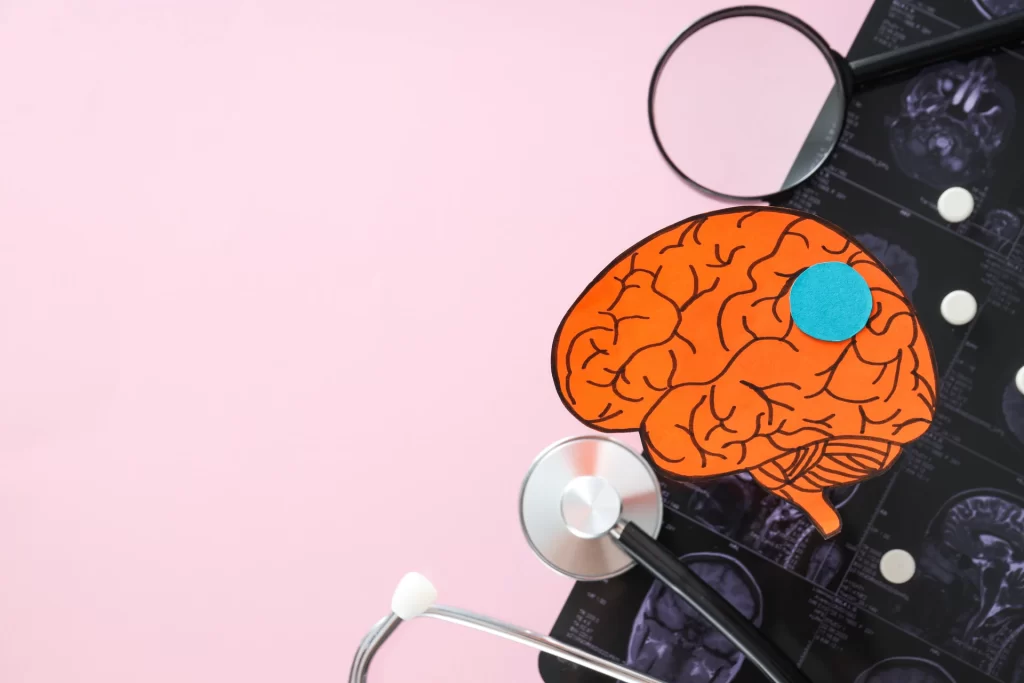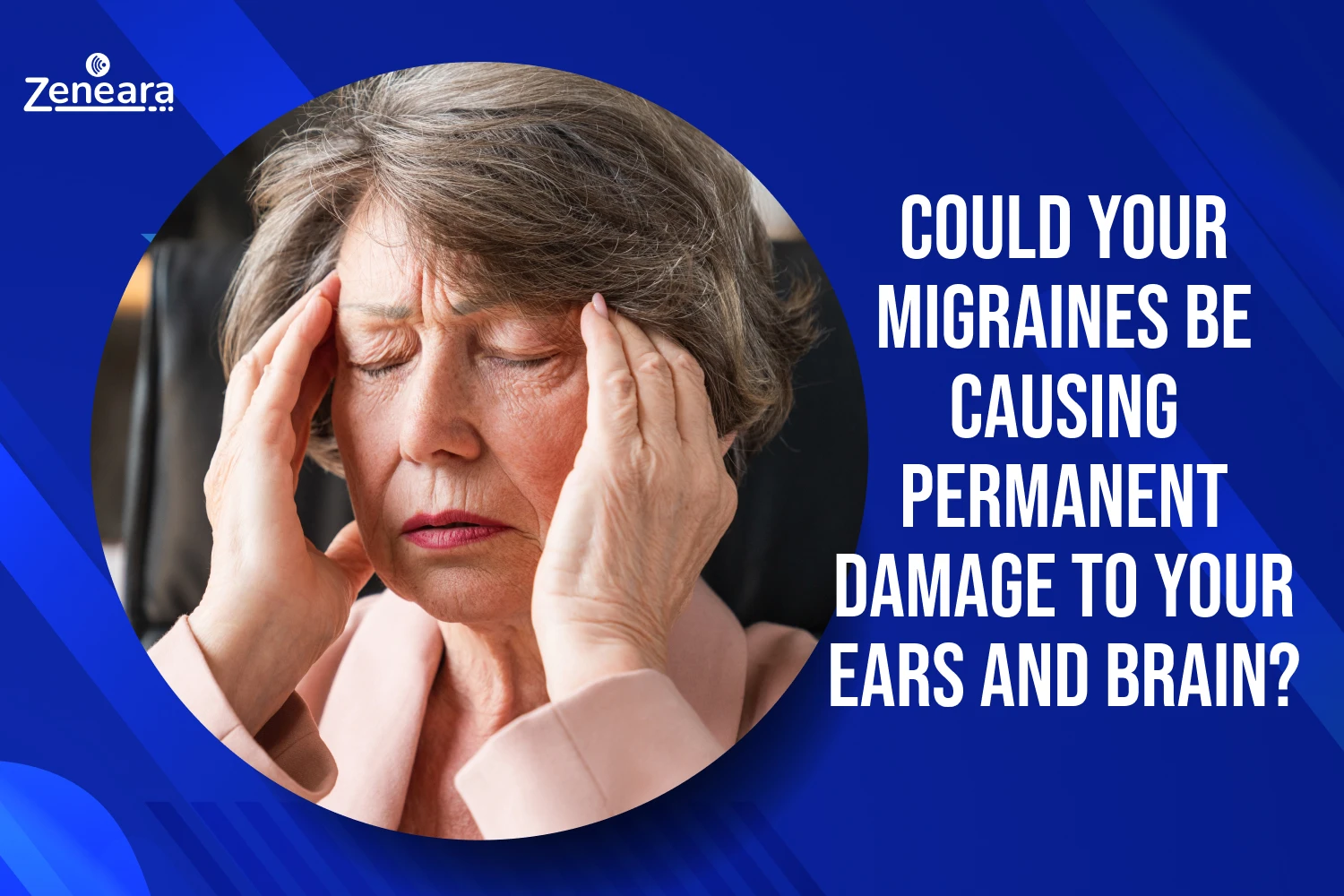Hey, it’s James Barrett here.
Many people don’t realize that the inner ear and the brain are like best friends. They constantly communicate and work together to keep you balanced and in sync.
But when migraines enter the picture, they’re like the annoying third wheel, throwing everything off.
So, if you’re someone who suffers from migraines, especially the kind that comes with dizziness, ringing in the ears, or a feeling of pressure, I want you to know that you’re not alone.
In fact, studies show that up to 80% of people with vestibular migraines (the kind that affects balance) also experience tinnitus. Mind-blowing, right?
But here’s the good news…
Understanding this connection could be the key to finally getting relief from both your migraines and your ear troubles. By taking a holistic approach and addressing the underlying issues, you can start to take control of your health and say goodbye to those debilitating headaches and annoying ringing sounds.
Today, we’ll explore migraines, ear health, and brain function. We’ll uncover the science behind their connection, share actionable tips for managing symptoms, and, by the end, give you a clearer understanding of how your body works.
Before we move on, I have a question…
Have you ever experienced ear pressure or ringing during a migraine? I’d love to hear your story. Reply to me to share your experiences.
So, are you ready to unlock the secrets of your ear and brain health? Let’s do this!
The Connection Between Ear Health and Migraines

As I mentioned earlier, the inner ear and the brain are like well-oiled machines when it comes to balance and sensory perception. The vestibular system, located deep within your ear, is responsible for keeping you upright and oriented in space. It constantly sends information to your brain about your body’s position and movements.
But when migraines strike, they can disrupt this delicate balance. The pathways involved in migraine attacks are closely linked to the vestibular system, and when these pathways get activated, they can trigger a cascade of symptoms that mimic ear disorders.
One of the most common symptoms is tinnitus, which is that annoying ringing or buzzing sound only you can hear.
Studies have shown that people with migraines are more likely to experience tinnitus, and the severity of their tinnitus often correlates with the frequency and intensity of their migraine attacks.
But tinnitus isn’t the only ear-related symptom that can come with migraines.
Many people also experience dizziness, vertigo, and a feeling of pressure or fullness in the ear. These symptoms can be debilitating and can significantly impact your quality of life.
What About Brain Health?

Now, let’s talk about the brain.
Migraines are more than just headaches. They’re full-body events that can affect your brain function significantly.
When you have a migraine, your brain goes through a series of changes that can lead to symptoms like mental fogginess, fatigue, and even anxiety or depression.
One of the key players in this process is a neurotransmitter called serotonin. Serotonin plays a crucial role in regulating mood and pain perception, and when it’s out of balance, migraines can strike.
Migraines can also cause inflammation in the brain, which can have long-term effects on cognitive function.
Studies have shown that frequent migraine attacks can lead to the development of brain lesions, which are areas of damaged tissue. These lesions can affect your overall brain health and contribute to cognitive decline.
I’m sharing this information with you because I believe understanding the connection between your ear, brain, and migraines is the key to finally getting relief.
By taking a holistic approach and addressing the underlying issues, you can start to take control of your health and say goodbye to those debilitating headaches and annoying ear symptoms.
This isn’t just theory… it’s based on the real experiences of people who have found relief by focusing on their ear and brain health. That’s why I’m so passionate about sharing these insights with you.
You deserve to know that there’s more to migraines than just the pain, and there’s more you can do to prevent them.
Actionable Tips for Better Ear and Brain Health
So, what can you do to start taking care of your ear and brain health?
Here are a few actionable tips:
Get your ears checked regularly
Don’t ignore symptoms like tinnitus or dizziness. A specialist can check for inner ear issues that might trigger your migraines.
Reduce inflammation
Follow an anti-inflammatory diet rich in omega-3s, leafy greens, and berries. These foods can help reduce inflammation in your brain and body.
Practice stress management
Stress can exacerbate migraines and worsen ear-related symptoms. Try incorporating stress-reducing activities like yoga, meditation, or deep breathing exercises into your daily routine.
Stay hydrated

Dehydration can affect both your vestibular system and brain function, worsening migraines. Aim to drink plenty of water throughout the day.
Get enough sleep
Good sleep hygiene is crucial for managing migraines. Aim for a consistent sleep schedule and create a restful environment to promote better sleep quality.
By incorporating these tips into your daily life, you can start to take control of your ear and brain health, and hopefully, say goodbye to those debilitating migraines for good.
So, there you have it – the surprising connection between migraines, ear health, and brain function. I hope this sharing has opened your eyes to the importance of taking a holistic approach to your health and has given you some actionable tips for managing your symptoms.
Remember, you’re not alone in this journey. Millions of people around the world are dealing with migraines and ear-related issues, and there are resources and support available to help you find relief.
Ready to take control of your migraines? Don’t wait until the pain hits.
Be prepared with your own Migraine Emergency Kit and start finding relief faster.
Download my free Migraine Emergency Kit Checklist and have all the tools you need right at your fingertips, no matter where you are.
If you have any questions or want to share your own experiences, feel free to reach out to me. I’d love to hear from you and learn more about your journey.
Until next time, take care of your ears and your brain.





